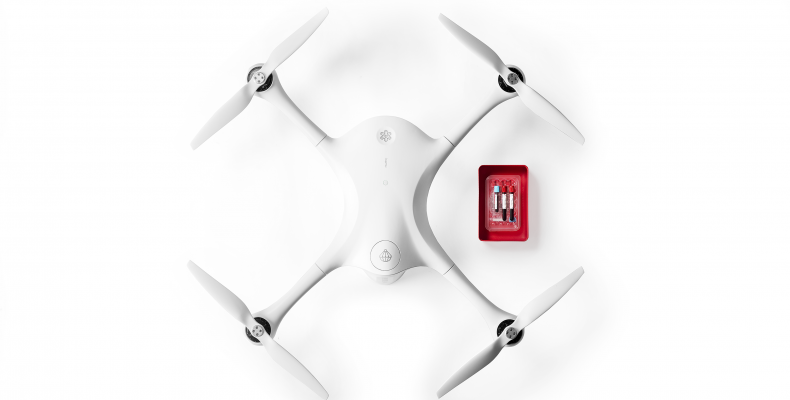A post-drone crashed into the lake via Zurich during the test phase. Of course a found media devour ?
I have now decided to add my mustard.
I am a great advocate of automated aircrafts and vehicles and have been waiting for autonomous passenger vehicles since 2001. Some drivers drive much worse than I expect from the worst AI. Funnily enough, I recently saw the German license plate “BAD-KI xxx” on a car and thought, oh how true, you would have to put this on every car that is driven by humans ?
However, all these autonomous systems still face great challenges and, to my regret, are still a few years away from widespread use.
I also believe that autonomous vehicles will prevail over autonomous aircraft and drones when it comes to delivering parcels in urban areas. On the one hand, because the energy technology is much cheaper and, on the other, because it does not require take-offs and landings.
In principle, airspace is probably easier to navigate in with autonomous vehicles, because the third dimension greatly reduces the probability of a collision. Nevertheless, this third dimension brings with it completely different problems.
What I don’t understand about the Swiss Post’s test drone is the fact that the FOCA has granted permission for a quadcopter to fly over urban areas. The drone of the type Matternet M2 V9 has, as the type designation already says, only 4 engines.
I have flown many different drone types and built and modified several myself.
Everybody who has dealt more intensively with drones is aware that a quadcopter immediately falls from the sky if a single engine fails. A failure of an engine can have many different causes. For example, a short interruption of the power supply due to disconnected plugs, loose contacts or broken solder connections due to vibrations. Rust due to humidity, rain or landings in water. Collision with a bird. Faulty firmware. The list can be extended almost at will.
A parachute for an emergency is laudable, but actually only necessary because you use a drone with only four engines.
Much safer, in my opinion, would be a Hexa- or Octocopter. These are drones with 6 or 8 engines. Only a hexacopter with 6 motors can, correctly designed and programmed, compensate the failure of at least one, if not two motors, stabilise itself again and initiate a safe emergency landing in a safe place.
What I also don’t understand is that when you fly over the lake, which is an estimated 3 km, you use a drone without wings. There are systems that can take off and land vertically, but change to an aircraft mode during flight. Firstly, this saves energy, enables higher payloads and increases safety, as these systems (VTOL – Vertical Take Off and Landing) can normally sail a few 100 metres without engines to reach a suitable point for a crash. E.g. https://wingtra.com/drone/
The FOCA’s responsibility for drone tests would actually be, firstly, to only allow systems that are safe from the outset. In other words, no quad copters, and secondly, for emergencies of autonomous system crash zones, which such a system must reach in any case, no matter how, whether with wings, parachutes or reserve engines. The lake has certainly been a good place for, with or without intention, ?
Sources:
Manufacturer’s website Matternet https://mttr.net/product
News from SRF https://www.srf.ch/news/regional/zuerich-schaffhausen/blutprobe-verloren-post-drohne-ueber-zuerichsee-abgestuerzt
News from the Tagesanzeiger https://www.tagesanzeiger.ch/zuerich/stadt/postdrohne-stuerzt-in-den-zuerichsee/story/19322044

 Ben learnt the mechanical craft from scratch in the workshop and then as a technical merchant. He then worked for a few years as a database programmer.
Then he studied mechanical engineering.
And he has completed some CAS trainings in Data Science.
Today he develops special machines for a special machine construction company in Switzerland.
In 2014 he founded the FabLab at Winterthur, Switzerland.
He's main hobbies are his girlfriend, inventing new things, testing new gadgets, the FabLab Winti, 3d-Printing, geocaching, playing floorball, take some photos (www.belichtet.ch) and mountain biking.
Ben learnt the mechanical craft from scratch in the workshop and then as a technical merchant. He then worked for a few years as a database programmer.
Then he studied mechanical engineering.
And he has completed some CAS trainings in Data Science.
Today he develops special machines for a special machine construction company in Switzerland.
In 2014 he founded the FabLab at Winterthur, Switzerland.
He's main hobbies are his girlfriend, inventing new things, testing new gadgets, the FabLab Winti, 3d-Printing, geocaching, playing floorball, take some photos (www.belichtet.ch) and mountain biking.
